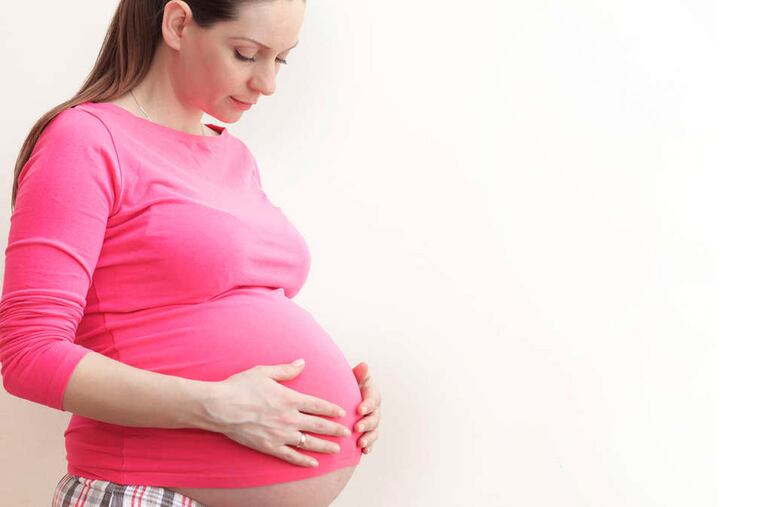Radiation and its effect on embryos
When Robert L. Brent was still in grade school, he told his mother he wanted to be a physician. But, he told her, he didn't have to charge his patients any money.

When Robert L. Brent was still in grade school, he told his mother he wanted to be a physician. But, he told her, he didn't have to charge his patients any money.
His mother told him that was kind of him, but not very practical.
"Actually," he said recently, "my dream came true."
Brent, who began his career in the early days of the Atomic Age, became a world-renowned expert on the effects of radiation on the human embryo. He found that birth defects, mental retardation, and miscarriage do not result from the amount of radiation received in most diagnostic tests.
In addition, for more than 60 years, he provided free consultations to women who were pregnant or who wanted to become pregnant and were concerned about risks from radiation. Many had been told by their doctors to abort. At first, they contacted him by mail or telephone. These days, they find him through the website of the Health Physics Society (www.hps.org), specialists in radiation safety.
Now head of the developmental biology lab at Nemours/Alfred I. duPont Hospital for Children and the Louis and Bess Stein Professor of Pediatrics at the Sidney Kimmel Medical College of Thomas Jefferson University, Brent recently received a $40,000 award from the Robert Wood Johnson Foundation. The annual award honors outstanding achievement in improving personal health-care services in the U.S.
Brent spoke to us recently about his work.
What did your research show about the effects of radiation?
Our research has shown that the risks are exaggerated. It shows very clearly that the embryo is more resistant to the carcinogenic effects of radiation than a child. It's because the embryo has a lot of extra cells, called stem cells, that have the potential to replace the damaged cells. As we grow older, we lose those so-called back-up cells. But the embryo has an abundant source.
The average person who has a diagnostic radiological study has an exposure of less than 10 RADs. [RAD is a measure of the amount of radiation absorbed.] Most X-ray exposures are around one or two RADs. But the threshold for birth defects for radiation is 20 RADs. So most diagnostic studies are way below the threshold. Also, most exposures don't expose the embryo.
We've shown in our work that there's no risk of birth defects or cancer or mental retardation or miscarriage at that exposure. No measurable risk.
Was that controversial at the time?
A British investigator by the name of Alice Stewart, an anti-radiation expert, reported that exposure to the embryo or child can increase the risk of cancer by 100 times. Our studies showed it didn't increase the risk at all. We had a 50-year controversy. In 2009 - I think that was the year - a fellow at the Atomic Bomb Casualty Commission, now called the Radiation Effects Research Foundation, published a series of papers about survivors of Hiroshima and Nagasaki. There were 2,500 children born who were in utero at the time of the bomb. Their risk of cancer was far below the risk of a child irradiated. They found exactly what I predicted they would find from my animal studies.
And so you began counseling women?
I did most of my consultations in the evening when I came home from work, from Jefferson or DuPont. And I would have a consultation that I got that afternoon. If I got home at 7 p.m. and the consultation came from India or England - think of the time difference - that mother is sitting there waiting for an answer. You can imagine how anxious these people are and how they need wise advice in order to help them through that dilemma.
By 2012, I had counseled 25,000 families with regard to birth defects. In this 25,000 there were hundreds that had been told to abort their pregnancies. I told them their risks were not increased. There are hundreds of babies that wouldn't have been born if the women had taken the original advice.
But there are no guarantees, right?
The problem is that there's a background risk of birth defects. Three percent of pregnancies will end up with a birth defect, whether there was exposure to anything or not. Fifteen percent will have a miscarriage. And 11 percent will have genetic disease. That's the thing that's very important. People will say, "Am I safe to have a normal baby?" I say that nobody is safe to have a normal baby because the background risk of problems is there for everyone.
What are the most important things women who are pregnant or about to become pregnant should know and do?
The most important thing is to get advice from people who know the field. There was a study to show the average general practitioner would recommend abortion 25 percent of the time if the woman had a CAT scan. That's ridiculous. You have to get the right advice.
Otherwise: good nourishment, avoid alcohol, and avoid certainly any drugs that are used for mood. This whole controversy about marijuana is ridiculous. We shouldn't approve marijuana for anybody, for anything.